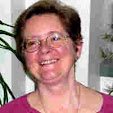I am leading a team of walkers for the Parkinson Superwalk on September 7, 2014 at Lafontaine Park in Montreal.
I am a 63 year old hematologist, and I was diagnosed with Parkinson's disease in 2005. Because of progression of the disease I had to cut back on my medical practice in 2010, and I am now completely retired.
Parkinson's Disease is a chronic progressive neurodegenerative disease resulting from the loss of dopamine-producing cells in the brain. The part of the brain involved in Parkinson's Disease co-ordinates body functions such as walking, maintaining balance, and swallowing. Depression and anxiety are frequently part of the disease, and sleep troubles, loss of sense of smell, and tremor are often seen.
The prevalence of Parkinson's disease increases with age, being about 1% at age 60, to 3% at age 80. Therefore with the increasing age of the Canadian population the incidence of Parkinson's disease, like that of Alzheimers, is expected to increase. The incidence of Parkinson's disease increases with the number of years of education, so doctors are over-represented.
Exercise is critical to the wellbeing of Parkinson's Disease patients. These patients are the extreme case of "if you don't use it you lose it." Those who do not take part in exercise programs quickly loose mobility and may die of aspiration pneumonia, (a lung infection resulting from food going into the lungs during meals) or from complications of falls. It is not known to what extent exercise programs can prevent the progression of the disease, but the patients who have a long survival tend to be the patients who maintain an exercise program. Ten years after a diagnosis of Parkinson's Disease 75% of the patients are dead or severely disabled, while 25% maintain good functional mobility. This 25% tends to contain those patients who maintain a regular exercise program.
The Parkinson Superwalk is the main fundraising activity of
Parkinson's Canada The money raised by the walk is used, among other
things, to support services to Parkinson's Disease patients and to
support research in Parkinson"s Disease. The funds raised in the Parkinson Superwalk are used by the Quebec Parkinson Society and the Parkinson Society of Greater Montreal to support, among other things, the exercise and singing programs of Parkinson en Mouvement (The Parkinson Dance Project) which I take part in. This is a non-profit organization providing exercise programs at the Belgo Building and at the Queen Elizabeth Hospital (http://....). Instructors include dance therapists, physiotherapists, and a singing coach. The classes are instructional and fun.
Disease-specific funds like those raised by the Parkinson's Society are also important in supporting of research, particularly that of new researchers. Grants from the Parkinson's Society are easier to obtain than government administered grants are for starting investigators. This availability of these grants encourages new investigators to develop a research interest in Parkinson's disease. This is particularly important with the reduced success rate of new investigators applying for government grants.
I am asking you to help support patients with Parkinson's Disease. by
-supporting the Parkinson's Superwalk in your area (https://www.facebook.com/ParkinsonSuperWalk.ca or http://donate.parkinson.ca/site/PageNavigator/SuperWalk2014/superwalk14_home.html?s_locale=en_CA).
or if you are in the Montreal area
-join my team (Gwenspurll, friends and family) for the Parkinson Superwalk September 7 in Montreal. Register online, (http://donate.parkinson.ca/site/TR/SuperWalk2014/QC_superwalk?team_id=1621&pg=team&fr_id=1179) and ask your friends and family to support your walk. Then join me and my other friends and family for a picnic afterwards in Parc Lafontaine to celebrate the day.
Subscribe to:
Post Comments (Atom)

No comments:
Post a Comment